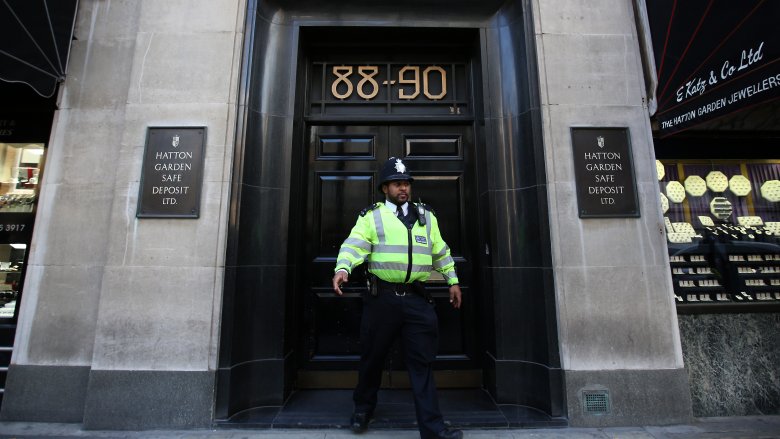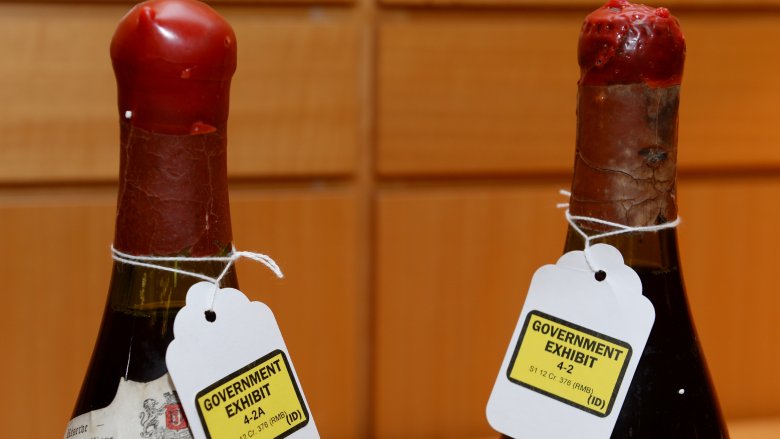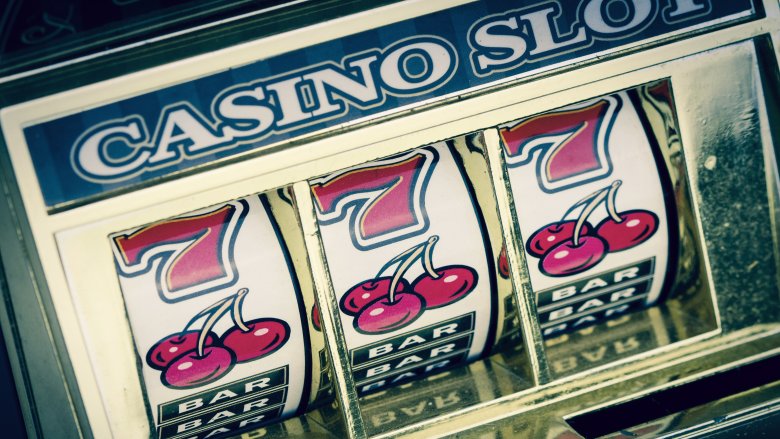Crazy Crimes That Deserve Their Own Movies
Have you ever noticed that movies about lawbreaking protagonists tend to have unlikable cops? They're often Wiggum-esque buffoons, crookeder than scoliosis, or dull obstacles to exciting delinquency. The criminals, meanwhile, brim with cunning, charisma, and Clooney-quality hotness. This partly stems from a pragmatic desire for likable main characters, but it also reflects an uncomfortable societal truth. Cops may play the good guys, but bold and brilliant outlaws seem heroic. In keeping with that unhealthy perception, this article highlights some remarkable real-life capers that belong on the big screen.
Invasion of the booty snatchers
Great gangsters get theatrical with their violence. Tony Montana's little friend showed us that. But even screaming Tony with his weapon-accentuated quips and mountains of nose sugar seems tame compared to Brazil's baddest baddies. To illustrate this, you need only look to the bullet-rife bomb opera that they orchestrated in Paraguay in 2017.
A gripping account by The Guardian described how roughly 50 Brazilian outlaws stormed the Paraguayan city of Ciudad del Este with lucrative bedlam on their minds. In a meticulously masterminded yet crazily chaotic undertaking, they battered local police with gunfire and grenades. Meanwhile, the bulk of the gang encroached on the private security firm Prosegur. After arranging a blockade of flaming cars, the group bombed its way into the building because cinematic crimes need explosions. They then used even more explosives to open the building's vault before snatching up $8 million.
Police who reached the scene found themselves utterly outgunned. Nonetheless, they fought on and laid chase as the gang fled. The assailants rewarded this bravery with bombs and road spikes. It's believed the group ultimately escaped on speedboats. In the end, three thieves perished in a shootout with police while another ten were arrested. One officer died. Paraguayan reporters described the boom-tastic blitz as "the heist of the century," which somehow sounds like an understatement.
The fast and the fulminous
These criminals combined blockbuster flare, high-speed car chases, and the bravery of a beekeeping nudist. A band of roughly a half-dozen men, they spent a year defiling 13 ATMs throughout rural Scotland and England. As detailed by the Liverpool Echo, between February 2015 and February 2016 they blew cash machines to smithereens. This entailed filling ATMs with oxyacetylene gas and detonating them with car batteries. Other times they sawed through walls, wrapped heavy-duty straps around the money dispensers, and drove off with them. These escapades amassed over half a million pounds.
Despite having the subtlety of a gold-clad mariachi band, the gang demonstrated loads of careful planning. The Telegraph explained that the group stole a truck and trailer in which they hid their getaway cars. They also kept a stolen motorhome where they stored hammocks for napping and gas for exploding. Their stupidly expensive cars included Audis and Mercedes that made the thieves look like the million bucks they wanted to steal as they eluded cops at 148 MPH.
For all their ostentation, the outlaws met a lackluster end. A cop cornered them at McDonald's and shot out their tires as they tried to flee. A total of seven men received sentences amounting to more than 100 years. The ringleader was already incarcerated, which the others should have really seen as foreshadowing.
Grumpy old menaces
Scaling an elevator shaft would send most seventy-somethings to Hip Replacement City. So would the average doorstep, most likely. Yet remarkably, the UK's "grandpa gang" not only conquered an elevator shaft but did so while making history. Led by men in their 60s and 70s, this walking Bengay ad masterminded Britain's largest recorded burglary.
According to Reuters, these thieves weren't your grandma's grandpas but seasoned crooks with a penchant for armed robbery. Taking a subtler route this go-round, they spent three years scheming to ransack the Hatton Garden Safety Deposit building. In April 2015, they acted. With the help of an unidentified man called "Basil," the group entered Hatton Garden through a fire exit. From there they descended an elevator shaft to the building's concrete vault and went to town on that sucker with a drill. An obstructing cabinet briefly foiled their plans, but the gang returned the next day and finished the job.
Once inside the vault, the greedy Guses snatched up $20 million in gold, diamonds, and other sparkly goodness. Cops ultimately caught up with the greying gangsters but could only track down a third of the stolen valuables. Most of the men received prison sentences ranging from 21 months to seven years, according to Reuters (via Stuff). One member, a 76-year-old, was too old and unhealthy to stand trial.
Diamonds in the bluff
Successful cash counterfeiters put tremendous time and energy into their craft. In Peru, for example, gangs recruit top-notch crews of supply people, print machine operators, and artists to mint mock money. The effort's perversely admirable. It's also laughably unnecessary. With the right ruse, you can buy stuff with play money.
In 2016, The Guardian reported that a cadre of cons duped UK jewelers with Monopoly money. For those of you unfamiliar with it, Monopoly money looks like it was cut from a rainbow tree. To be fair, the crooks didn't just hand wads of neon bills to a cashier. Rather, they crammed the faux dough between real money or covered it with paper.
The scam worked thusly. Gang members would meet a jeweler in some discrete location to complete a prearranged sale. To achieve realism, they would run actual money through a cash counting machine. The seller—undoubtedly salivating with excitement—patiently waited as the buyers put away the counting machine and surreptitiously switched out the bills. The thieves would soon abscond with their acquisition, leaving a humiliating surprise for their mark. The cons made over £7 million this way, which in turn made lawmen angry. Cops ultimately busted the baddies, who received prison terms ranging from 21 months to a smidge over seven years. Hopefully the judge made a Monopoly joke.
Dirt devilish
Whether you want to roboticize the world or just rob it, a little ingenuity goes a long way. Sometimes that means inventing a better lock pick. Other times it's as simple as picking up a couple of appliances from your local hardware store. France's notorious "vacuum gang" exemplifies the latter.
As their name implies, the bandits employed vacuum cleaners in a series of dirty deeds. Disappointingly, they didn't go the fun route of trying to suck wallets out of people's pockets but opted to hit a string of Monoprix supermarkets. As per Gizmodo, the vacuum gang's unorthodox approach capitalized on a colossal flaw in Monoprix's money delivery system. The stores transferred money to their vaults through pressurized tubes. Lifting that loot was as simple as drilling through the tubes and hoovering cash-laden envelopes through the holes.
This simple hack reaped $800,000 from 15 supermarkets between 2006 and 2010. It likely also fueled suspicion about every Dirt Devil sale in France. The culprits, who appeared on security footage as a series of ski masks and glee, have seemingly escaped capture. But since no one knows who they are, it's impossible to say whether any of them got nailed for other offenses or maybe invested their ill-gotten earnings in a vacuum store. Bizarrely, despite getting plundered for years, Monoprix neglected to beef up security.
Jailhouse crock
Drug dons and snitching usually go together like skydiving and cement parachutes because turncoats often get a lot worse than stitches. But the chance to reduce a prison sentence sounds mighty tempting when you take the retaliatory torture out of it. Heroin Hercules John Haase and his nephew Paul Bennett confronted that dilemma in the 1990s. They responded with a clever compromise.
As per The Guardian, Haase earned his infamy by teaming up with a Turkish drug cartel and dominating the UK's heroin market. With the help of his nephew, he smuggled so much smack into England that the price dropped by £4,000 per kilo in a single night. This earned the men 18-year prison sentences. However, the diabolical duo knew if they reported a huge crime, they could potentially go free. So that's precisely what they did...right after concocting said crime.
Using cell phones hidden in Haase's pooper, the crafty cons had accomplices scatter guns, grenades, and ammo in 35 locations. Then they reported this massive undertaking, which trimmed 17 years off their sentences. Meanwhile, an innocent man they framed received jail time, according to the BBC. However, Haase's dedication to crime was their undoing. He got arrested again and tried to shorten his sentence by admitting the staged crime. Instead, he condemned himself and Bennett to lengthy prison terms.
Pinot egregious
Wine does weird things to people. Consumers blow big bucks on almost-spoiled juice as a show of class when even most connoisseurs can't distinguish between expensive vino and generic grape hooch. That holds especially true for rare wines because—as The Guardian observed—people seldom drink them enough to recognize their taste. This opens the door for underhanded shenanigans, a door which Rudy Kurniawan happily walked through.
Kurniawan was a rich kid with poor judgment. As per CBS News, he had a legitimate start in the wine business. But after buying $40 million of wine and only selling $36 million of it, he changed his mind about the whole honesty thing and became a posh charlatan. Kurniawan turned his home into a flavor chamber where he tweaked inferior wines to make them taste like the allegedly good stuff. Then he would bottle it, slap a fake label on that bad boy and sell it to the highest bidder. The Guardian reported that he raked in $24.7 million in a single auction.
One of Kurniawan's victims was billionaire Bill Koch, who eventually noticed he'd been hoodwinked and paid investigators to out the culprit. That ultimately earned Kurniawan a ten year prison sentence. According to Reuters, he contested his conviction, but a judge told Kurniawan to quit his whining and upheld the punishment.
Dirty cyber sects
Hollywood seems to envision computer hacking as a high-tech version of Ali Baba and the Forty Thieves. Someone types in the code for "open sesame," a bunch of unintelligible script and geometric shapes flash across a monitor, and a vault springs open. But as Gizmodo pointed out, real hacking has the glitz and drama of soggy cardboard. There is one exception, however: Russian cybercriminals.
In 2015, Russian hackers pulled off one of history's biggest bank coups. CNN reported that the e-crooks drained about a billion dollars from over 100 banks around the world. They achieved this by infecting computers with malware called "Carbanak." The Telegraph further explained that Carbanak spread through phishing emails. The program tracked online activity and accessed office video feeds, allowing the criminals to establish employee patterns.
After four months of watching workers (probably) pick their noses on camera, the hackers struck. Impersonating employees (sans nasal spelunking), they hit banks in 25 different countries. The malevolent maestros transferred millions of dollars into false accounts and set ATMs to hemorrhage money that was scooped up by accomplices. To hide these losses, the thieves simply bolstered the amount of money listed in someone's account, artificially erasing the difference. Disturbingly, it doesn't appear anyone got busted. So there's no telling if or when a bigger heist will happen.
Commander and thief
For years, William Hanhardt and gang-busting got along like gangbusters. As summarized by Sharon Cohen and the Associated Press, he had frisked his way to becoming the Chicago PD's chief detective, commander of the burglary section, and perennial belle of the police ball. His near-legendary career earned him a consultative role on the TV show Crime Story, which modeled cop protagonist after Hanhardt himself. Naturally, a man with such vast policing success and knowhow would make a fantastic criminal. Unfortunately, Hanhardt agreed.
In what should be the plot of a series called Breaking Badge, the onetime officer joined a jewelry heist ring. The NWI Times revealed that Hanhardt exploited police ties to get info on various jewelers, enabling his men to stalk and steal with ease. Most notably, the gang stole $1.5 million worth of gems in 1994. Having discovered an Ohio hotel would host jewelry show attendees, the group had someone check in and store valuables in multiple safe-deposit boxes. Copying the keys from these boxes allowed the men to forge a master key. Plunder ensued.
Like all crime stories Hanhardt's eventually ended. A $5 million robbery spree landed him and his men in the same place he'd sent countless wrongdoers. According to the Chicago Sun Times
, Hanhardt got ten years behind bars and a lifetime of ignominy.
The long arm of the lawless
Pickpockets feel like relics of a bygone time (when they do their jobs right, you don't feel them at all). Immortalized by Victorian Era authors like Charles Dickens, these artful dodgers feel out of place in the age of Facebook and phishing. But rest assured that they're still out there invading people's personal space and poaching their belongings. Enter Cannon of the Wiz, a collective of over 200 pickpockets from Chicago.
Why they picked such a whack moniker is anyone's guess. But according to Wired, group leader Clyde Austin Gray adopted aliases like "Poochie" and "Big Head," suggesting that he really sucked at naming things. Gray more than compensated, however, with his knack for organized thievery. He and his robbing hoods racked up over $2 million by melding old-fashioned deviance with newfangled technology.
Members would attend major sporting events and other social gatherings for the purpose of pocket pilfering. They then used stolen ID and bank cards to print fake identification and access financial accounts. This allowed them not only to make illegal credit card purchases, but also bank withdrawals and monetary transfers between compromised accounts. During the 2000s, the group even ripped off then-Federal Reserve Chairman Ben Bernanke, according to Newsweek. Naturally, pantsing banking's Superman has consequences. The gang's "Big Head" and nine others were apprehended in 2009.
Viva Loss Vegas
Casinos are lotteries for people who like to feel in control. Patrons blow cash like runaway horses in hopes that their betting mojo, juju, or Mojo Jojo will eventually them rich. Learning from this folly, Russian swindlers skipped the superstition and devised an unbeatable slot machine hack.
According to Wired, the whole mess began with Vladimir Putin. In 2009, the Slavic bear hugger pushed to outlaw most forms of gambling in Russia. This sparked mass auctioning of slot machines, as casinos no longer needed them. Crime bosses and counterfeiters pounced at the opportunity to own and analyze the apparatuses. Rigorous examination revealed that various models of slot machines have distinct, disgustingly complicated payoff patterns. In order to exploit these patterns, aspiring casino raiders fly to places like America and have a field day.
The casino cheat plays sample rounds on a select slot machine and sends the results along with machine specs to Russian cohorts via phone. Those cohorts use the data to predict upcoming payoffs, signaling when the player should yank the slot lever. Done across multiple machines, the winnings get sizable. One trickster earned $21,000 in just two days. Much to casino owners' dismay, no useful countermeasure seems to exist. As a result, casinos will get scammed almost as badly as their customers—poetic injustice at its finest.
Almond joyless
According to Quartz, the California produces nearly 100 percent of America's commercial walnuts and pistachios and four-fifths of the world's commercial almonds. That's an insane amount of nuts, and they come with huge profits. Realizing this, thieves in 2016 commandeered over 30 truckloads of nuts valued at $10 million.
If you pictured a bloody skirmish, guess again. No one ended up in a pile of pistachio and bullet shells. The nut-nabbers instead abused an auction system for truck companies, a tactic which has grown increasingly common over the years. See, many retailers lack the capacity to transport nuts independently. As a result they have third-party couriers compete online to carry the crunchy cargo. Thieves take advantage of this in two ways. As per CNN, they either impersonate actual companies that have landed legitimate nut jobs or fabricate the firms and contracts.
To fetch the nuts, crooks sometimes just change the delivery address on an existing contract. Alternatively, they show up to pick-up location, flash some doctored documents, and execute the theft before the rightful company arrives. The crooks sell these illicit wares overseas to unwitting companies or on the black market. The nonviolent nature of these thefts classifies them as misdemeanors, meaning that even when they do get caught, they only face mild penalties. If anything, that's an incentive to keep stealing.
Hyde society
At first blush, George Leslie seemed ritzier than a hotel cracker. A 19th century architect with a timeless face, Leslie hobnobbed with gobs of snobs and became big on the New York party scene. In reality he was simply hiding his inner Hyde, a ravenous robber that outfoxed America's securest banks.
Leslie's success stemmed from patience and painstaking planning. The Daily Beast explained that he frequented banks until he knew enough to draw blueprints of them. Utilizing his architectural prowess, he constructed copies bank vaults that he and a horde of henchmen practiced robbing. To elude suspicion, Leslie sometimes deposited his own money in a place he planned to rob. Other times he ingratiated himself to higher-ups and convinced them to hire one of his men.
Leslie's diligent delinquency paid off in spades. Between 1869 and 1878, he participated in an estimated 80 percent of America's bank robberies, making him the Wilt Chamberlain of screwing financial institutions. He composed his malignant magnum opus in 1878 when he and his men pillaged the Manhattan Savings Institution, America's most well-guarded bank at the time. The crooks made off with $3 million ($65 million in 2014 currency). Things went swimmingly until Leslie's unexpected murder in 1878. He was only 40 years old, which goes to show that only the good bad guys die young.













